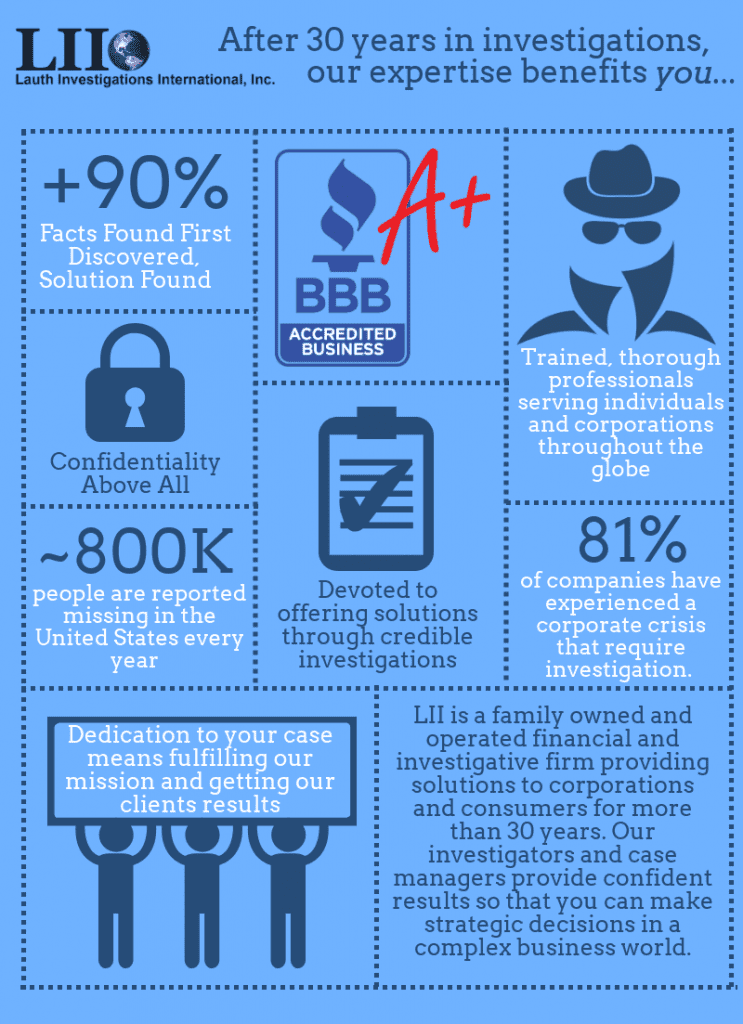5 Quick Tips For Knowing Who You Meet Online
There’s nothing inherently wrong with meeting someone online; more and more people are meeting that way each year. However, it’s important to know how to vet someone you have met online—it’s not as easy as with people you meet in person. Read these quick tips about how to know who you meet online. 1. […]
Workplace Fraud: The Three Types of Employees
There are a few generally accepted types of employees when it comes to workplace fraud and embezzlement. Social science has done a great deal of research on who commits workplace fraud and why they decide to offend. The three most common types of employee, when it comes to likelihood of committing fraud, are: honest employees, […]
5 Options for Who to Call When You Suspect Workplace Fraud
So you’ve realized that you are the victim of workplace fraud. What now? For many business owners, it can be frustrating trying to figure out what to do after uncovering fraud in the workplace. Here are five options of who to contact when you suspect that you’ve been duped. 1. Many begin by calling […]
When to Call a Professional for a Corporate Investigation
Most experienced professionals in upper-management and/or HR positions have had to conduct some type of corporate investigation at some point during their careers. It’s just par for the course. Unfortunately, there are certain circumstances in which an internal investigation conducted by company employees may not be the best option. In these cases, hiring a professional is a better choice. Not sure when’s the right time to call in reinforcements? Here are a few guidelines.
What is Workers’ Comp Fraud and How Can a Private Investigator Help?
Workers’ compensation is an insurance program that is designed to assist employees who become injured on the job or suffer a job-related illness. Unfortunately, not every claim that is filed is legitimate and the business is often the one that pays the price. In fact, more than 1 in 10 employers are concerned that a worker will fake an illness or injury in order to fraudulently collect workers’ comp benefits. Let’s take a closer look at the different types of workers’ comp fraud and what you can do to protect your company from becoming a victim.
7 Steps to a Successful Workplace Investigation
Despite your best efforts, complaints and internal issues will sometimes arise in the workplace. In these instances, a thorough investigation of the situation can vastly improve the chances of a favorable outcome for your company. For instance, the information you uncover can help build a case and/or protect your firm’s hard-earned reputation. If you’re dealing with a potential problem, such as employee theft, fraud or drug abuse, here are 7 steps to conducting a successful workplace investigation.
How a Private Investigator Can Help in a White Collar Criminal Case
White collar crime happens every day in the US, and it costs corporations billions of dollars annually. As with most things, preventing these crimes from occurring is always preferable, but given the number of cases making the news on a weekly basis, that’s obviously not always possible. For those situations in which you either suspect a crime is being committed in the workplace or you’re already in the throes of a legal battle, an experienced private investigator can significantly improve the chances of a more favorable outcome. Here’s how.
What’s Involved in a Copyright Infringement Investigation?

Copyright infringement can be one of the most detrimental infractions a business can fall victim to. Regardless of the size or industry of the organization, locating violators and holding them accountable is something that must be done to protect the integrity and hard work of the company. As experienced private investigators, we’ve assisted with countless copyright infringement investigations over the years. Here’s what the process typically involves.
4 Reasons to Hire a Private Investigator During Your Divorce

Going through a divorce is difficult no matter what the circumstances. Having a skilled, experienced private investigator in your corner can make a challenging situation a little bit easier to navigate.
Tips for Conducting a Social Media Investigation
While hiring a professional to locate someone or dig up information will always net the best results, there are some actions that even a novice can use to get the ball rolling on a social media investigation before having to bring in an expert. Let’s take a look.